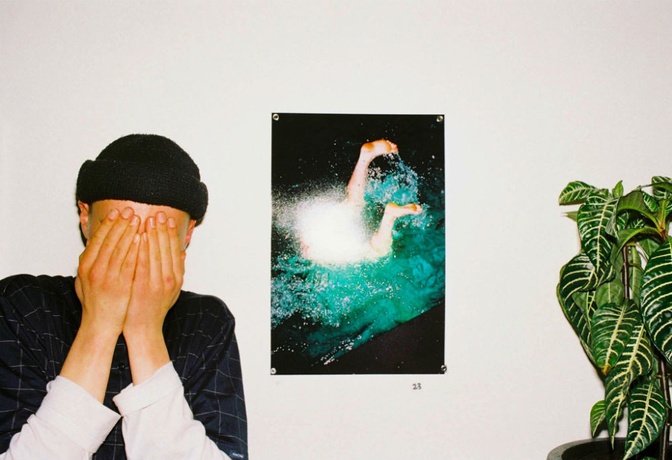There’s a world of work out there if you know how to channel your interests.

The world of creative freelancing can be harsh and unforgiving. It often comes with long working hours and endless self-promotion, often for little reward. So what’s the secret to monetising creative work?
While there isn’t any easy answer, there are some ways to put yourself in the best position for success. Here they are, according to those in the know.
Freelance illustrator and designer Nathan Nankervis, who has worked with renowned brands Nike, Bonds and Heineken, says it’s vital first and foremost to stick to what’s true.
“The best marketing and best scheme you can have is to be yourself,” he says. “People gravitate towards things that are authentic. Figure out who you are, be comfortable with that, and give that to the world.”
It’s something Levis Australia and New Zealand marketing manager Nicky Rowsell recommends, too.
“Have a point of view. Have a unique look. Have a unique aesthetic,” she says. “Don’t just look like everyone else. … You do you – and do it well.”
Rowsell has more than 15 years industry experience working alongside a number of reputable brands such as Rip Curl, Sportsgirl and Country Road – all of which work with creative freelancers.
Nankervis recommends then “tailoring your offering” to make it easy for people to come to you when they have something specific in mind.
“I only put out the work I want to get back – almost like the bait on the end of the fishing line,” he says. “When I had to design a book, I would deliberately do a very illustrative cover, so people know I’m the guy who does illustrations. People only ask you to do what they see you already do.”
Regular social-media promotion is obviously important. But according to Melbourne photographer Will Philip – who’s shot for Converse, Puma and Crumpler – it’s best not to be too haphazard. His advice is that social-media accounts should focus solely on the content on your work.
“A lot of people oversell themselves with too many hashtags or sponsoring too many posts; I try to cut all of that out,” he says. “It needs to be curated to a degree where it shows a really good amount of your work.”
Nankervis is also “very conscious” in managing his social-media accounts. His advice is to “try to keep things as professional as possible. All points of contact with your business need to have some standard of quality.”
Building an audience on social media is also obviously important, though Rowsell says freelancers shouldn’t expect work just because they’re popular.
“Sometimes people reference all their followers but it’s not about that,” she says. “People assume because they have a certain number of followers I might want to use them, but it has nothing to do with that – it’s only about the quality of the work.”
Philip agrees: “A big trap is thinking your followers or likes ratio is going to get you work – or going to get you more work than other people who might have less of a following.”
It’s true what they say – hard work does pay off. As Nankervis says: “The people who are really successful work and work and work.”
Philip also recommends curbing the chatter.
“Talk less and work more,” he says. “You really want to put things out and let the work speak for itself. People tend to overhype, tease new projects and say things are coming soon and then never release them, or release them way too late.”
Nankervis suggests shaping your lifestyle around your career, so you can “effectively be working all the time without even realising it”.
“I love to watch cartoons, I love going to galleries – all these things I naturally do day to day are feeding into my art; they’re trickling into my work. So, I’m constantly working, in a sense.”
Making it as a creative often comes down to who you know. As Philip puts it, it’s about “meeting different people who know others in the industry.”
He recommends, “messaging people, talking to people, commenting on photos of photographers who you’re a big fan of – just to show appreciation for the work they’re doing and make yourself known in a positive way.”
Rowsell also stresses the importance of networking.
“Work with other people who you admire and who you can learn from,” he says. If you’re starting out as an assistant or even getting the coffee, make sure you’re working with great people. Surround yourself with people who are more experienced than you, so you can always push yourself to be better.”



